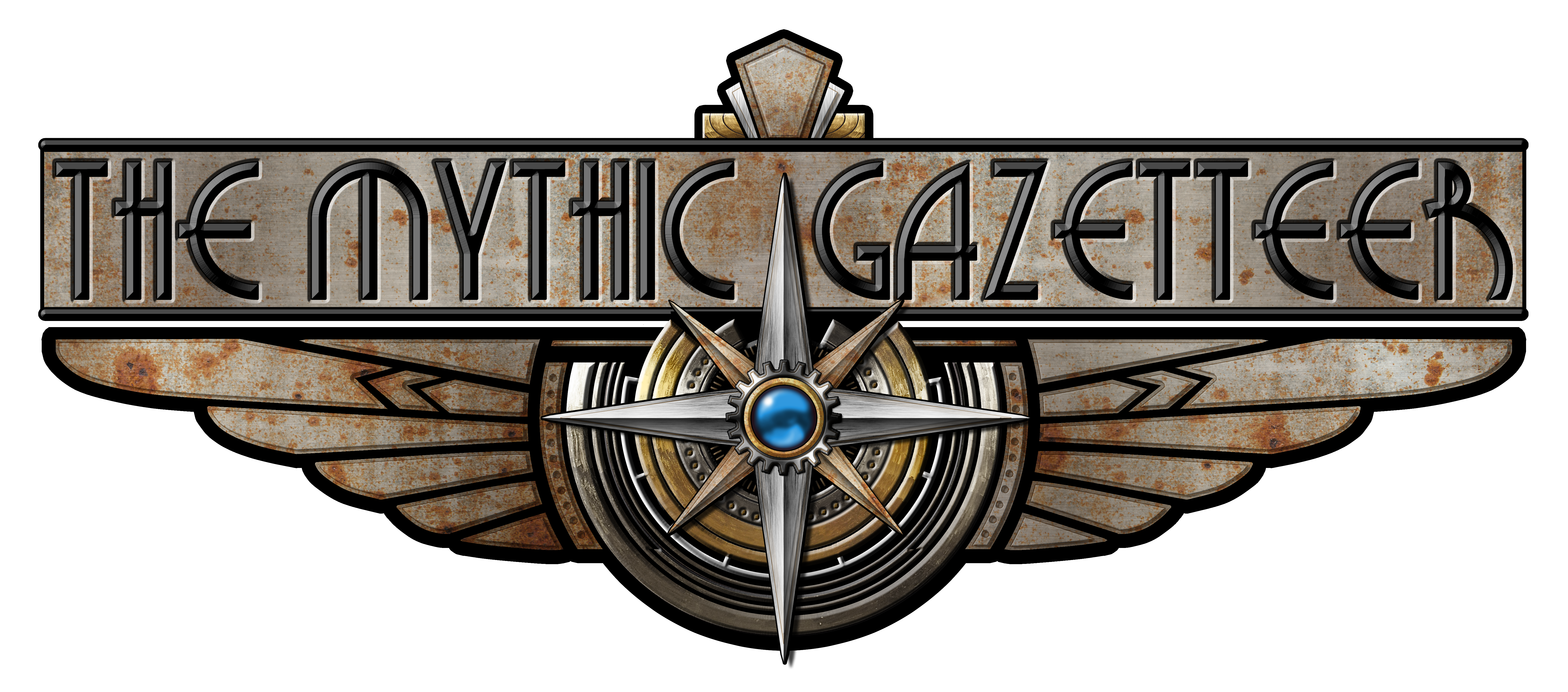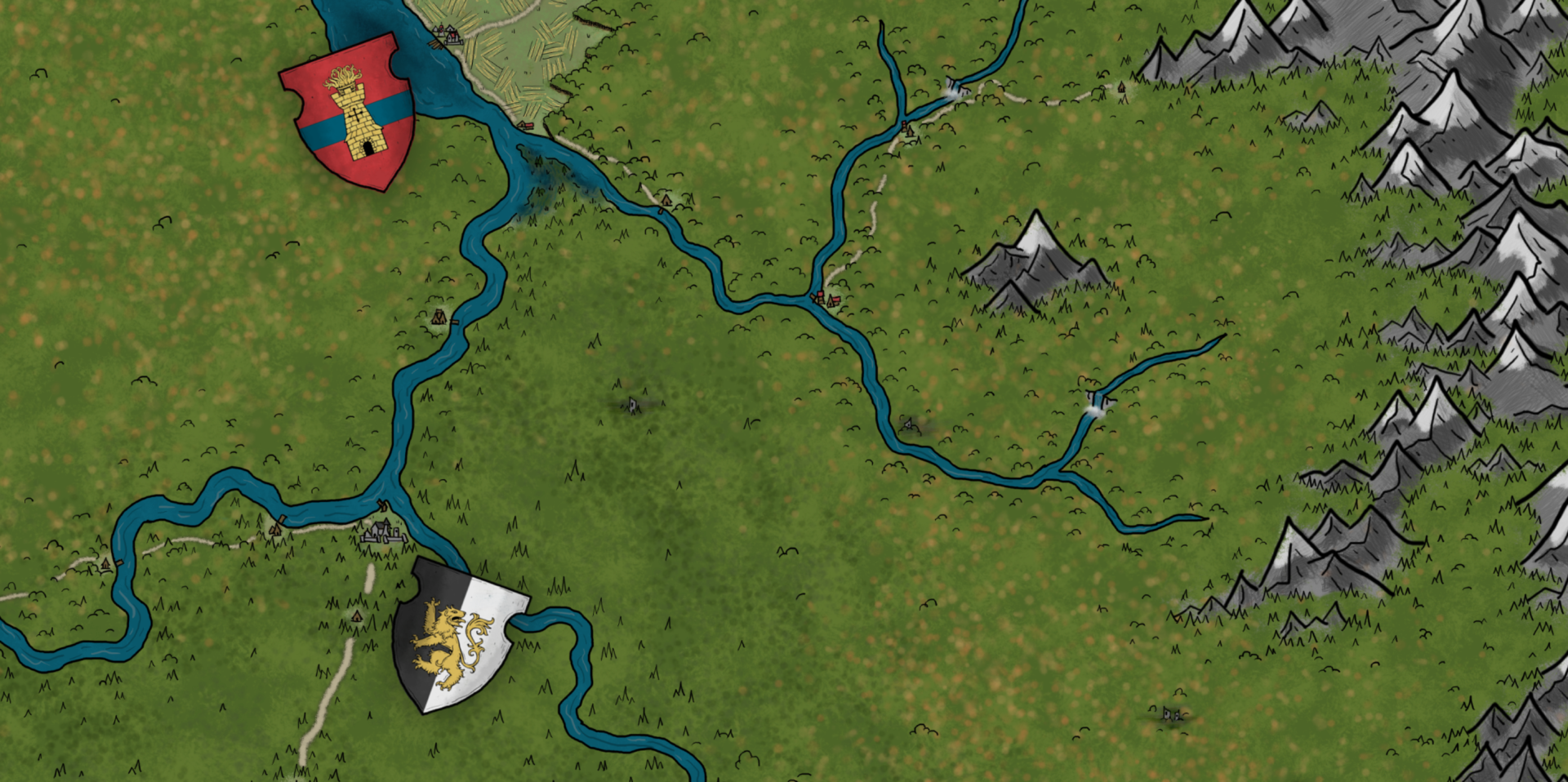Politics is the process of making decisions that apply to members of a group.
That doesn’t sound scary or objectionable.
You know what that sounds like to me?
The exact experience of playing a roleplaying game.
Friend and fellow designer Eric Simon has a great post up over on his blog:
All Games are Political, and So Are Ours
At the end of Eric’s post he sets up a plan to highlight the political messages within each of his company’s games. I’m going to use his Premise, Action, and Presentation framework to explore the politics in The Blackwood. This is a long post, but I promise it’s not a political rant. It’s also worth noting first that I’ve been open about this on the blog before. For me, understanding politics in general is an important element in understanding how to build a world.
My three part series on “mythic” gaming explains how I see tabletop RPGs’ potential to help us explore challenging ideas in a safe context, so it should be no surprise that I’ve used RPGs in general and the Blackwood specifically to explore my own politics. I even addressed real-world politics explicitly in the Leafstone and Silk adventure for The Blackwood. You can see some details about that in this blog post. I understand a lot of people are uncomfortable bringing their politics (or anyone else’s) into a game on purpose, but like Eric says: that’s a political stance in itself. If it’s something that’s going to happen all the time anyway, we might as well make an effort to notice and understand it when it happens.
A Political Premise
The Blackwood is a place where humans have carved out a realm in the midst of hostile wilderness. I wanted to create a setting where I could explore my Germanic heritage, the folklore of my American culture, and the high-flying wuxia action that I’ve loved for most of my life.
American folklore in particular informed the basic premise of the setting: that a monarchy has gone bad, and only drastic action can save humanity from the fallout. The parallels with the US Revolutionary War are apparent, but in places they’re explicit too: the Vosserlin Reclaimed quest (page 110 of The Blackwood Errantry Codex) lets you team up with George Washington Jurg von Fatherton and his lieutenant Molly Pitcher Molle the Pitcher to cross the Delaware build an ice bridge across Iron Lake to take the city of Trenton Vosserlin back from an army of Hessians pagans. There’s even a cameo from “Leeward Karl,” an expy of General Charles Lee, who was a stick in the mud to Washington’s plans. You might say “that’s history, not politics,” but people who lived during that time would disagree with you. The Revolutionary War was deeply, thoroughly political, as was the colonial project that fueled it (more on that later).
True to wuxia fiction, it’s also a world with deep inequalities. Workers toil under abusive bosses, nobles hold all the power and wealth, and people are outlawed (read: saddled with a death sentence but given a chance to flee) for unjust reasons. Refugees flee the dangerous frontier only to find a lack of support in the cities. You might think “most of this sounds like Robin Hood, not politics,” but my dude, I’m here to tell you that means politics have been a part of western fantasy for a lot longer than you might realize.
True to real life, The Blackwood’s problems are addressed by different groups in different ways. These solutions vary in quality. Some groups want to keep things as they are: unequal and exploitative. Some groups think throwing money and diplomacy at the problem will fix things. Other groups think radical resistance is the only solution. But also just like the real world, most people just wish the world were a better environment for the normal, uninvolved lives they want to live. One of my favorite things about RPGs is that they give you, dear reader, a chance to explore these perspectives in safety and decide for yourself which ones you want to support.
Political Action
It is into this world of crisis and inequality that you arrive, an errant sworn to walk the Way’s Margin according to your passions and ideals. Before he disappeared, the Elder King knew there would always be people at the fringes of his realm that his laws couldn’t protect. So he created the errants as a legally enshrined form of direct action. Errants aren’t required to be virtuous, but they spend their time among the MARGINalized peoples of the Blackwood. It’s my hope that the adventures I’ve written build empathy for the struggling people of the setting and encourages errants to use their freedom to help those people (and, y’know, that this empathy bleeds over into empathy for real-world marginalized people too). It’s a framework that leaves room for both murderhobos and big damn heroes, but I hope people drift toward the latter.
I believe direct action is a necessary component of any healthy relationship between people and their government. Creating change requires you to put your back into the effort: to seek out and stand up for the people who are suffering in this world. Leafstone and Silk is the adventure where I shout this ideal the loudest, but everything about errants and their work reinforces it.
Political Presentation
Representation and diversity are important to me. I wasn’t able to afford a sensitivity reader for The Blackwood Errantry Codex but I did what I could to get feedback from marginalized voices. Here’s what I did both in and outside the game to make this in the way I wanted.
In-Game Presentation
First thing’s first: I use “they” as a default pronoun in the book. I thought briefly about alternating he, she, and they, but it ended up being easier to use just one, and “they” was the most inclusive. I also tried to be gender diverse in my art: there are plenty of men and women, a few gender-ambiguous characters (like the Elftouched cultural image), and I made sure not everyone was classically beautiful. In fact, the only “fan service” art piece in the whole book is of a guy (the male Riverfolk image).
I also made sure there was ethnic diversity present, both in the art and in the characters that are only represented by text. It was a mental hurdle for me to clear at first: if my primary visual inspiration is German folklore, how many non-white images should I include? The answer, of course, was “plenty! This is a fantasy world!” So thanks to some great work from my artists (and even Kickstarter backers who provided custom characters and locations for the book), I’ve got folks who look Asian, Latinx, and African in addition to white characters.
Including pictures of diverse people isn’t enough though. It’s also important to treat diverse populations with respect. The biggest thing I did here was to abandon the concept of racial templates in favor of cultural templates. In the real world, races are not monolithic. As a white person, my innate qualities are very different from other white people; my intelligence is nowhere near Einstein’s; my strength is nowhere near Schwarzenegger’s. Why should we present fantasy races that way?
Instead, I said there are a number of cultural centers (riverfolk, woodkin, Widelanders, etc.) that each have certain typical (but not universal) qualities. Riverfolk spend time around more humans than average, so they’re better at conversation. Woodkin spend a lot of time in a dangerous natural world, so they’ve developed a bunch of little superstitions to cope (superstitions I took care to leave vague, both to avoid stereotypes and to empower players to come up with their own). Widelanders come from a distant part of the world; they’re strangers, so they don’t start off speaking Common like everyone else. There may be more and less common ethnicities in each cultural center, but I took care to say that a person of any ethnicity could be a “native” to any given cultural center.
Meta-Game Presentation
In addition to expressing my politics through in-game presentation, my politics guided my process while developing and publishing the game too. I hired 13 people to create The Blackwood with me, including three women, two people of color, one person living with a disability, and several LGBTQ individuals. I empowered them to create work they were proud of, work that represented their identities and cultural backgrounds in a respectful way. I got feedback about the setting from several of them and changed (read: improved) the setting based on that feedback. In every case, I tried to pay as close to a living wage as I could in exchange for their work. Another of my political stances: everyone deserves to survive and thrive on the things they enjoy doing.
Room for Growth
As much as I tried to be empathetic and respectful on this project, I’m not perfect and there are things I could have done better. One thing that sticks out immediately is the setting’s low-key support for colonialism. The Elder Kingdom is made up mostly of people who are indigenous to the Blackwood but its stories are inspired by the colonialist culture of early US history. That history was brutally violent against Native Americans (not that we’re much better today), and I worry that by giving that folkore a platform I’m tacitly condoning my culture’s darkness. After all, I present pagans as sinister forces lurking at the edge of the realm, and they share some similarities with Native Americans. I had planned to release a supplement that humanized pagan cultures but I’m not sure that’s going to happen anymore.
In terms of publication, I could have focused more on diversity in my hiring. Over half of my freelancers were white guys, partially because most of the people who are “known” in the Savage Worlds community are, well, white guys. Still, it’s a ratio I’d like to further diversify in future projects. I’d also like to be able to pay everyone a little better with each new project.
This isn’t an exhaustive list of how my politics and priorities are represented in The Blackwood Errantry Codex, nor is it an exhaustive list of how I can do better in the future. But it is getting to be a very long post, so I think I’ll tuck further thoughts away for now. I hope this post has helped shine a light on the ways politics are unavoidable in anything (even RPGs) and why that’s OK. Being conscious and explicit about politics in gaming can be a way to share the joy we experience when we take part in this hobby we love.

